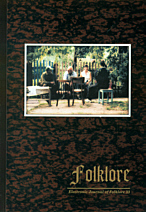The Modern Genre of Finnish Mass Sermon
The Modern Genre of Finnish Mass Sermon
Author(s): Päivikki AntolaSubject(s): Customs / Folklore
Published by: Eesti Kirjandusmuuseum
Keywords: anthropology of communication; audience; mass sermon; nonverbal behaviour; persuasive communication; verbal behaviour of a Finnish priest
Summary/Abstract: The paper looks into the mass sermon in the Finnish Lutheran Church around the turn ofthe millennium. The material consists of day services documented by means of participant observation. Day services are nowadays called a mass, if communion is served. A mass sermon can be characterised as persuasive communication encompassing three processes: 1) a process that strengthens a person's worldview; 2) a process that shapes the worldview, or 3) a process that changes the worldview. The paper discusses the semantic and functional principles of communication in a mass sermon: familiarisation, emphatic and trustworthy behaviour, self-confidence, personification, principles of opposites and common interest, the authoritarian principle, principles of assigning blame, winning time and building obstacles. From the listener's point of view, the mass sermon answers the question what the listener has to know to be able to interpret the sermon according to his own worldview. I will show that the mass sermon meets the criteria of a religious genre in its origin, form, contents, function, style and structure.
Journal: Folklore: Electronic Journal of Folklore
- Issue Year: 2006
- Issue No: 33
- Page Range: 71-84
- Page Count: 14
- Language: English

